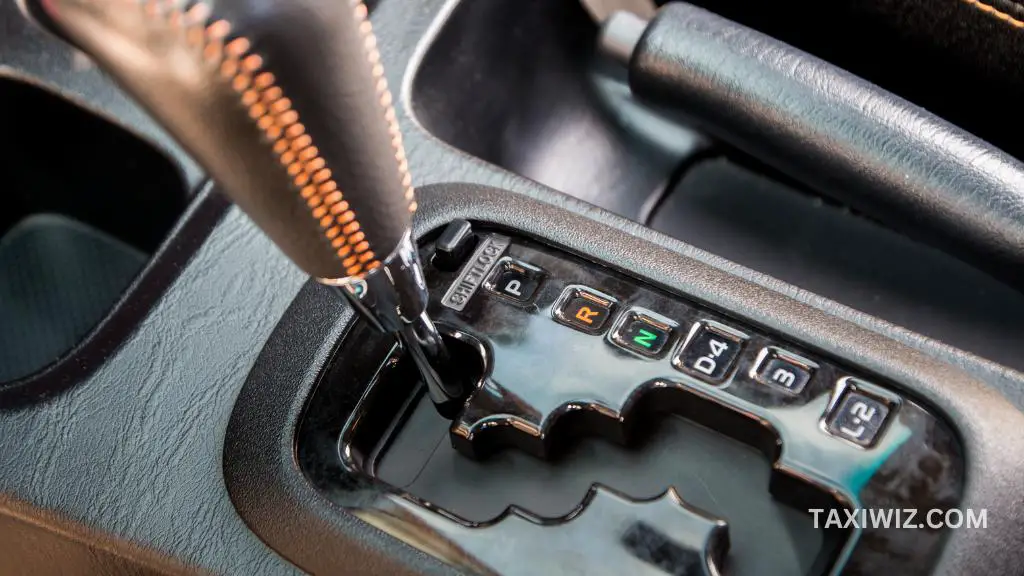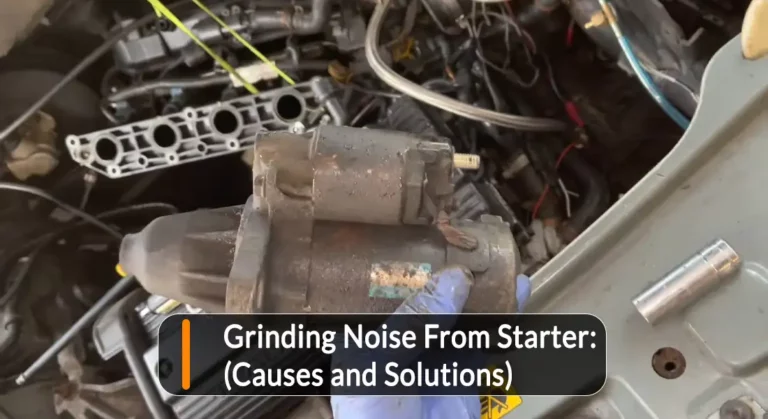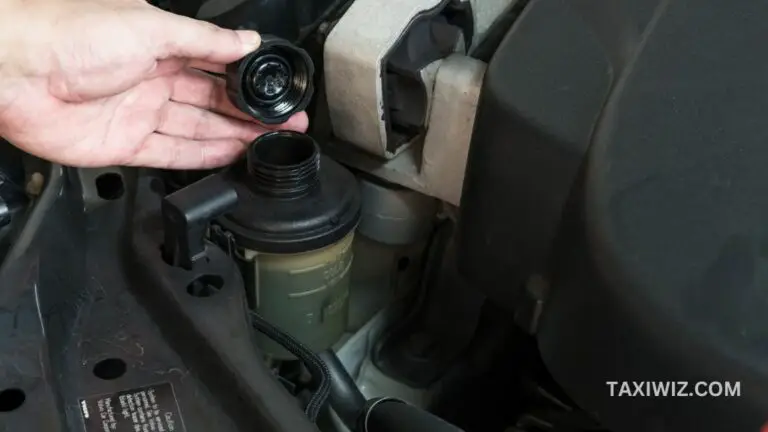Can A Transmission Go Out Without Warning?
You’re cruising down the outskirts with your favorite music blasting through the speakers and suddenly your car shudders, lurches, and comes to a standstill. It begs the question; can a transmission go out without warning?
The answer, my friends, is a resounding “yes” and “no” combined with a hearty dose of “it depends.” Confusing, right? Allow me to clarify. In some cases, a transmission failure can indeed occur without any forewarning signs. However, more often than not, transmissions do exhibit subtle signs of distress.
These signs may include grinding noises, delayed or rough gear shifts, slipping gears, or a burning smell emanating from beneath the hood. In this article, you will find out every important information you need to be ready for this problem.

Can a Transmission Go Out Without Warning?
Yes. Depending on the specific part that failed and the way it failed you might not have any warning or maybe didn’t notice the difference until it was too late.
Most transmission damage is caused by a lack of fluid or a fluid restriction, such as an internal filter. When the transmission runs out of fluid, it doesn’t take long for it to fail.
Solenoids for valves, for example, might fail suddenly and never work again unless replaced. And solid metal parts can shatter due to unforeseen stress or a flaw, resulting in a weak area that can’t bear any extra tension.
A broken cooling line, for example, can lead you to lose all of your transmission fluid in a matter of minutes. On top of that, there are numerous o-rings and seals in your transmission that can fail.
It allows fluid to flow where it is not supposed to and pressure to be lost where it is needed. This is how transmission can fail without a warning.
Common Indicators That a Transmission Is About to Fail
Here are some common indicators that your transmission is about to fail:
1. Stinky Oil
This part does not apply to vehicles without a transmission dipstick unless you are ready to get underneath the vehicle to get a sample of the transmission fluid that is inside your transmission.
Start the engine and check the fluid. The oil on the stick should then be smelled. It shouldn’t have much of an odor, to begin with.
But if it smells anything like burnt popcorn, that’s a direct indication that:
You neglected to change your fluid frequently enough
Your transmission has been running above normal operating temperature for a long enough time to have done damage.
2. Odd Color of Transmission Oil
With a bright white disposable cloth, rag or paper towel, wipe the transmission fluid off the dipstick. This will allow you to see the fluid color. It should appear to be a bright red/real light purple when new.
3. Gear Slippage
Gear slippage is an obvious sign that your transmission is failing. The engine may be rev higher than usual. But the car fails to accelerate or unexpectedly changes out of gear.
Gear slippage can be caused by worn clutch plates, damaged bands, or a lack of transmission fluid pressure. If left unattended, it can cause more transmission damage and potentially render your vehicle undriveable.
4. Strange Noises
Unusual noises coming from your transmission can signal internal problems. You may hear grinding, grumbling, or clunking sounds during gear shifts.
These noises can be caused by worn-out bearings, faulty synchronizers, or other internal malfunctions. Ignoring these sounds can cause additional damage and render your transmission unworkable.
What Are the Potential Causes of Sudden Transmission Failures?
There are several factors that can contribute to an unexpected transmission failure. These are discussed below:
1. Overheating
One of the primary causes of transmission failure is excessive heat. Transmission fluid is essential for cooling and lubricating the system. If the fluid becomes too hot, it will degrade, lose viscosity, and no longer offer proper lubrication.
Overheating can be caused by carrying high loads, driving in harsh temperatures, or a faulty cooling system. Inadequate fluid cooling can cause wear and tear, causing the transmission to fail abruptly.
2. Fluid Contamination
Transmission fluid contamination can be disastrous to your transmission. Water intrusion, engine coolant mixing with transmission fluid, or the presence of dirt and metal particles can all cause fluid contamination.
The ability of fluid to lubricate and protect transmission components is reduced when it is contaminated.This results in increased friction and accelerated wear.
3. Improper Fluid Levels
Maintaining optimum fluid levels in your transmission is critical to its optimal operation. Transmission issues can arise from both low and high fluid levels. Inadequate fluid levels can result in poor lubrication and overheating.
While excessive fluid levels can cause foaming, decreased hydraulic pressure, and erratic shifting. If left uncorrected, these imbalances place undue strain on the transmission components and can lead to unexpected failures.
Can a Well-Maintained Transmission Still Go Out Unexpectedly?
Even with regular maintenance, a transmission might suffer from manufacturing defects. These problems can include design flaws, inferior materials, or manufacturing errors.
A faulty part or assembly, while uncommon, can cause premature wear, internal damage, or full failure. It is critical to stay up to date on any recalls or manufacturer alerts.
While regular maintenance is essential, some operating situations might put the transmission under excessive stress. This potentially leads to unforeseen breakdowns.
Even a well-maintained transmission might succumb to the effects of age and mileage over time. Internal gearbox components such as seals, gaskets, clutch plates, and bearings wear and tear with time.
Are Certain Types of Transmissions More Prone to Sudden Failures?
Automatic transmissions are generally reliable. But they are more prone to unexpected failures than other types. Because of the sophisticated design and various components involved in its operation, unexpected faults may occur.
Electronic sensor failures, solenoid troubles, and torque converter problems can all cause unexpected transmission failures.
While CVTs (Continuously Variable Transmissions) have grown in popularity, they are more prone to unexpected failures. These can be caused by belt slippage, pulley or bearing failures, or fluid-related issues.
While DCTs (Dual-Clutch Transmissions) offer exceptional performance and fuel efficiency, they have been known to fail unexpectedly in some situations. These incidents can be caused by clutch pack failures, electronic control module faults, or insufficient cooling.
What to Do If a Transmission Fails Without Warning?
When you experience loss of power, inability to shift gears, unusual noises, transmission slipping, or a complete lack of response, stay calm and pull the car over safely.
Turn off the engine, and dial 911 for help. Meanwhile, avoid performing repairs yourself and instead communicate with the repair shop.
An expert conducted diagnosis is necessary for determining the cause and taking the necessary actions. Consider warranty or insurance coverage to help with costs.
Can a Transmission Go Out Without Warning?- FAQs
1. Can extreme weather conditions contribute to sudden transmission failures?
Extreme weather conditions, such as extremely hot temperatures put additional stress on the transmission. This may potentially contribute to failures.
2. Is it possible to repair a transmission that failed without warning?
Yes. Depending on the cause and extent of the failure, it may be possible to repair a transmission that failed without warning. However, in some cases, a transmission replacement or rebuild may be necessary.
3. How long does a transmission typically last before it fails?
On average, a well-maintained transmission can last around 150,000 to 200,000 miles.
4. Is it worth investing in aftermarket upgrades to reduce the risk of sudden transmission failures?
Aftermarket upgrades, such as transmission coolers or improved clutch components, may offer some benefits in terms of performance and durability.
5. Can I prevent sudden transmission failures with DIY repairs or modifications?
It is unlikely. Major transmission repairs or modifications are best left to professionals.
Related articles:


